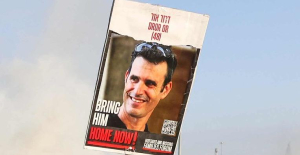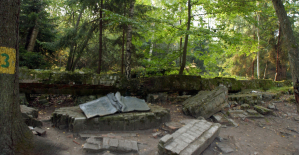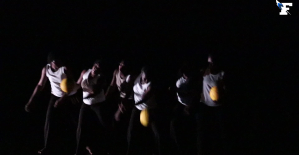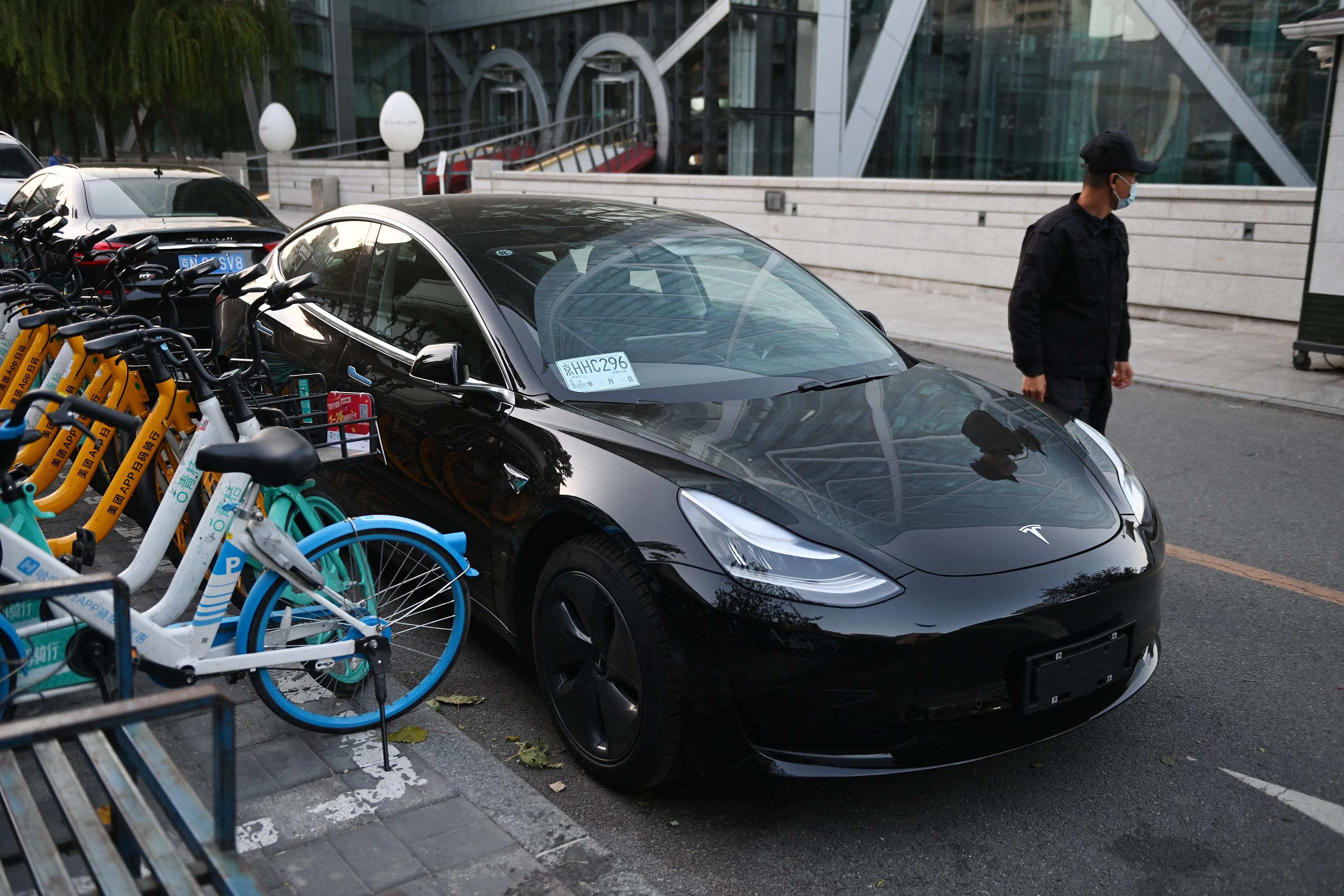“We want to recruit the best and we are in an extremely competitive world.” You might think you're hearing the boss of a large consulting firm or a tech giant, and yet, it's not the case: the sentence was uttered by a human resources manager from the General Directorate of External Security, better known by the acronym DGSE. During an interview with Ouest-France, the head of the institution expressed the ambitions of the French secret service, which aims to recruit “more than 700 additional positions between 2024 and 2030”.
The new military programming law, passed last July, allocated nearly 60% additional budgetary credits to French intelligence, with the aim, in particular, of expanding its workforce. For the Ministry of the Armed Forces, the objective is clear: France must maintain its place in the leading ranks of global intelligence services. “The DGSE must be the technological locomotive for the entire intelligence community. We must be competent everywhere: analysis, major shared programs, foreign languages, cyber...,” proclaimed the Minister of the Armed Forces, Sébastien Lecornu, on May 11.
No more covert applications: to recruit new exceptional profiles, the DGSE has chosen to move forward openly. For several months now, “Centrale” has been posting dozens of job offers on traditional recruitment sites such as LinkedIn, JobTeaser and Welcome to The Jungle. Aficionados of the series The Bureau of Legends (Canal) will undoubtedly be disappointed not to find offers for “dealing officer”, the unofficial title of DGSE spies. Conversely, engineers have something to rub their hands with. On LinkedIn, the positions to be filled give pride of place to telecommunications and “cyber”: telecom network investigator, Pentester, big data engineer... The sample gives a glimpse of the diversity of skills sought by the DGSE. “We have more than 248 different professions,” indicates the HR manager interviewed by Ouest-France. These recruitments, which meet the technical needs of the secret service, are essentially carried out under contractual status.
Budding James Bonds can rest assured, the institution still needs handling officers, who constitute, in themselves, the hard core of French “human intelligence”. To hope to join this elite corps, you must pass the DGSE attaché competition. A particularly selective competition, since last year, it attracted 1000 candidates for 36 positions… The winners of the competition join the “Centrale” as an analyst: it is only after several years that they have the possibility of being sent on a mission abroad, and therefore, of becoming a spy, like the famous Malotru, played by Mathieu Kassovitz on screen. Like the character, “most of the analysts and officers involved are former Sciences Po”, according to Olivier Mas, former officer and ex-illegal DGSE. “These are training courses that go very well with what is expected of agents,” he adds. Hence a certain “monoculture” in the contingent of civilian recruits, who constitute 39% of the DGSE workforce, neck and neck with the military (32%).
Overall, “sensitive” positions require a very high level of qualification, including those on the technical side. “Among our agents, there are a lot of Sciences Po, graduates of Inalco, a lot of engineers, polytechnicians, normaliens…”, recounted the general director of the institution, Bernard Emié, to the magazine Emile in 2019. And this is not the only prerequisite for recruitment. “Once the candidate is selected, he is subjected to a series of psychotechnical tests, which he must pass. What follows is a 6-month investigation to validate the secret-defense clearance, during which the institution searches all the information available on the candidate, looking for the slightest flaw, including in the family circle,” reveals Olivier Mas .
According to the former “clandé”, not everyone is cut out to join the secret services. The first quality is, unsurprisingly, discretion. This is also what the institution recommends to potential candidates: “be discreet about your application”, we read at the conclusion of recently published job offers. We could see a touch of humor there. However, when it comes to recruiting the future leaders of French intelligence, the “Central” takes real precautions. “The DGSE ensures that recruits do not have mythomaniacal tendencies or even a tendency to be talkative,” says Olivier Mas. The slightest flaws in private life are tracked by the institution: “What is prohibitive are the problems of money, addictions…”, breathes the ex-spy. Other points, less obvious, may merit a “problematic” mention on the candidate’s file. “Having a journalist spouse, for example, can pose a problem. Likewise, you have to pay attention to nationalities. Having a family member who is Russian today, for example, would be seen as very sensitive,” assures Olivier Mas.
Having remained in the shadows for a long time, the DGSE benefited from an unexpected wave of popularity thanks to the Bureau des Légendes series. The “Centrale” has largely taken advantage of this television success to strengthen its communication and boost its attractiveness, particularly among young people. In the wake of the 2015 attacks, many French people spontaneously proposed their candidacy “in the service of France”. But it is not exactly these “general public” profiles that Boulevard Mortier covets. The DGSE is rather eyeing young, very high-level engineers and mathematicians. In this area, it is in competition with large private companies. “We must adapt to the strong tensions in certain specialties. In the field of imaging or cyber, it’s the jungle!” confessed the boss of the DGSE interviewed by parliamentarians last June. According to the manager contacted by Ouest-France, the remuneration offered to young talents remains at a “good level”.
“Engineering profiles are often chased away by the DGSE in major schools. To convince them, it offers interesting contracts,” underlines Olivier Mas, while admitting that salary is not the DGSE’s best argument. “It’s obviously the sense of mission that attracts, serving the State.” More than the salary gap, it is the rigidity of Boulevard Mortier which can slow down candidates, believes the ex-spy. “The younger generation likes to impose its demands on the employer and maintain a certain freedom to change. However, joining the DGSE involves complying with a strict protocol and staying a certain time in the institution, at least ten years, due to the training and accreditation time for positions.

 Who was Dror Or, the Israeli father who died as a hostage in the hands of Hamas?
Who was Dror Or, the Israeli father who died as a hostage in the hands of Hamas? “Pay in cash”: at his trial, Donald Trump faced with an embarrassing recording
“Pay in cash”: at his trial, Donald Trump faced with an embarrassing recording Italy: a grandmother accidentally serves a bottle filled with wine to a baby, he has an alcoholic coma
Italy: a grandmother accidentally serves a bottle filled with wine to a baby, he has an alcoholic coma The mysterious skeletons of Hermann Göring's villa
The mysterious skeletons of Hermann Göring's villa Children born thanks to PMA do not have more cancers than others
Children born thanks to PMA do not have more cancers than others Breast cancer: less than one in two French women follow screening recommendations
Breast cancer: less than one in two French women follow screening recommendations “Dazzling” symptoms, 5,000 deaths per year, non-existent vaccine... What is Lassa fever, a case of which has been identified in Île-de-France?
“Dazzling” symptoms, 5,000 deaths per year, non-existent vaccine... What is Lassa fever, a case of which has been identified in Île-de-France? Sánchez cancels his agenda and considers resigning: "I need to stop and reflect"
Sánchez cancels his agenda and considers resigning: "I need to stop and reflect" After 50 years of existence, “Numbers and Letters” will disappear from the France Télévisions channels
After 50 years of existence, “Numbers and Letters” will disappear from the France Télévisions channels Macron reaffirms his desire not to increase taxes
Macron reaffirms his desire not to increase taxes The expulsion of families of delinquents from HLM reinforced in the future Housing law?
The expulsion of families of delinquents from HLM reinforced in the future Housing law? Health carpooling, this source of savings which arouses the ire of patients and taxis
Health carpooling, this source of savings which arouses the ire of patients and taxis The incredible musical juggling of the Basketteuses de Bamako
The incredible musical juggling of the Basketteuses de Bamako Death of Frank Stella, the most spectacular painter-sculptor
Death of Frank Stella, the most spectacular painter-sculptor Film buff's memories of the Champs-Élysées, by Éric Neuhoff
Film buff's memories of the Champs-Élysées, by Éric Neuhoff Madonna thrills Brazilians on Copacabana beach
Madonna thrills Brazilians on Copacabana beach Omoda 7, another Chinese car that could be manufactured in Spain
Omoda 7, another Chinese car that could be manufactured in Spain BYD chooses CA Auto Bank as financial partner in Spain
BYD chooses CA Auto Bank as financial partner in Spain Tesla and Baidu sign key agreement to boost development of autonomous driving
Tesla and Baidu sign key agreement to boost development of autonomous driving Skoda Kodiaq 2024: a 'beast' plug-in hybrid SUV
Skoda Kodiaq 2024: a 'beast' plug-in hybrid SUV The home mortgage firm rises 3.8% in February and the average interest moderates to 3.33%
The home mortgage firm rises 3.8% in February and the average interest moderates to 3.33% This is how housing prices have changed in Spain in the last decade
This is how housing prices have changed in Spain in the last decade The home mortgage firm drops 10% in January and interest soars to 3.46%
The home mortgage firm drops 10% in January and interest soars to 3.46% The jewel of the Rocío de Nagüeles urbanization: a dream villa in Marbella
The jewel of the Rocío de Nagüeles urbanization: a dream villa in Marbella Facing Jordan Bardella, the popularity match turns to Gabriel Attal’s advantage
Facing Jordan Bardella, the popularity match turns to Gabriel Attal’s advantage Europeans: a senior official on the National Rally list
Europeans: a senior official on the National Rally list Blockade of Sciences Po: the right denounces a “drift”, the government charges the rebels
Blockade of Sciences Po: the right denounces a “drift”, the government charges the rebels Even on a mission for NATO, the Charles-de-Gaulle remains under French control, Lecornu responds to Mélenchon
Even on a mission for NATO, the Charles-de-Gaulle remains under French control, Lecornu responds to Mélenchon These French cities that will boycott the World Cup in Qatar
These French cities that will boycott the World Cup in Qatar Paris 2024 Olympics: Mbappé does not “think much” about the Games
Paris 2024 Olympics: Mbappé does not “think much” about the Games Rugby: a young pillar of the Vienna club, in the 3rd division, died in a car accident
Rugby: a young pillar of the Vienna club, in the 3rd division, died in a car accident Premier League: beaten by Liverpool, Tottenham moves away from the Champions League
Premier League: beaten by Liverpool, Tottenham moves away from the Champions League Bundesliga: Leverkusen easily disposes of Frankfurt, 48th consecutive match without defeat
Bundesliga: Leverkusen easily disposes of Frankfurt, 48th consecutive match without defeat


















